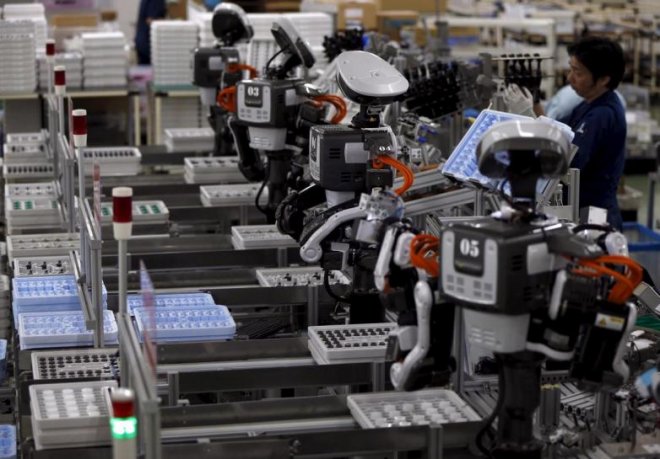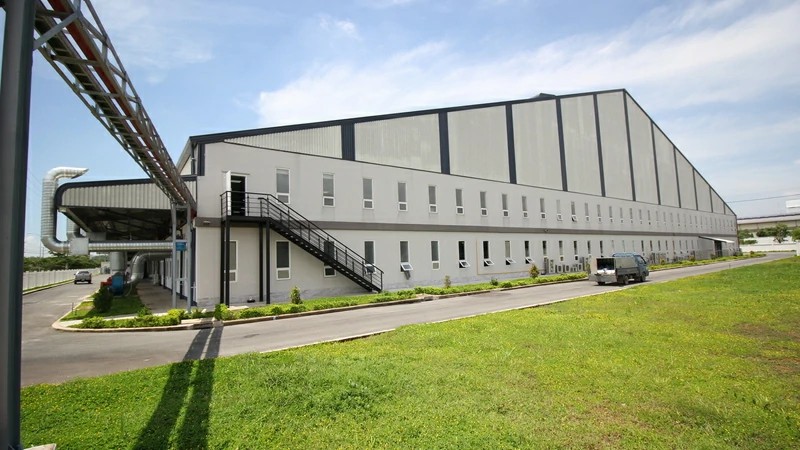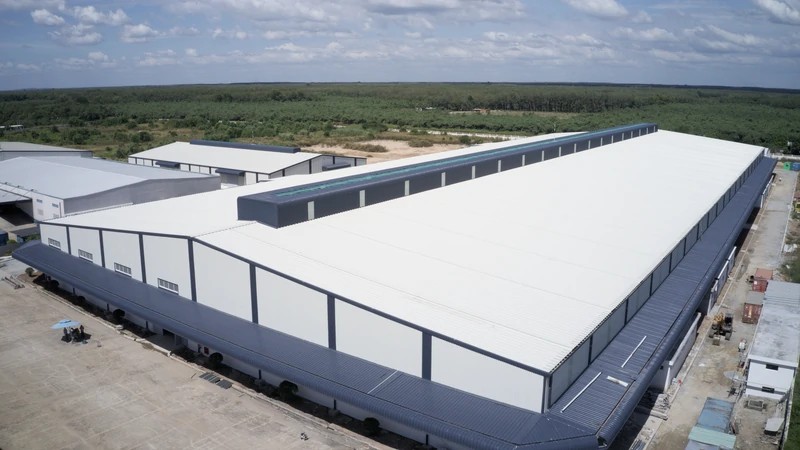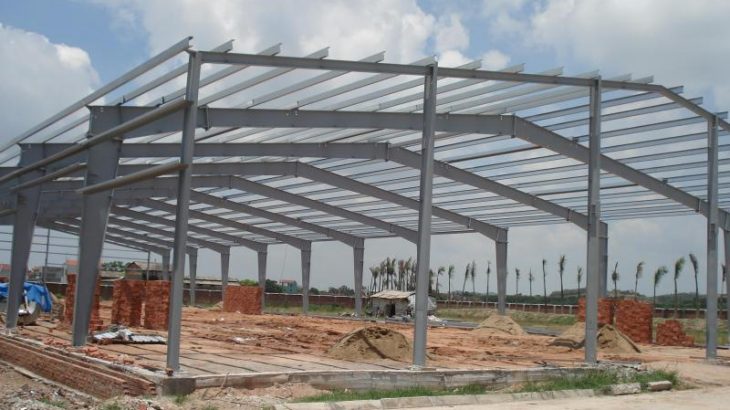What are manufacturing companies in Singapore?
Manufacturing companies in Singapore are firms that utilize raw materials, parts, and components to assemble finished goods. Manufacturing businesses often employ machines, robots, computers, and humans to supply the merchandise and typically use an production line, which enables a product to be put together step by step, moving from one workstation to subsequent.
Manufacturing businesses can prefer to sell their products on to consumers, to other manufacturers, to distributors or to wholesalers.

How do manufacturing companies work in Singapore?
Manufacturing companies in Singapore usually contain several lines or business processes. Here are some common business processes:
Procurement process
Procurement process is associated with the procurement of products and other needs in assisting the sustainability of a business. Not only materials or raw materials, but also includes spare parts, medical devices, cleaning equipment, building needs, employee needs, carpentry tools, and other materials and components. This process requires completeness also as efficiency and effectiveness within the selection of those items.
In Out Inventory
Considering the business processes that process raw materials into ready-to-use products, there’ll automatically be many goods or materials entering and leaving the corporate. In-out Inventory may be a business process that handles the entry and exit of those items, the key’s control of product flow.
Production process
The function of the assembly process is processing raw materials into finished goods and may be sold to consumers. Actually, there’s a wider division counting on the requirements of the industry. for instance, PPIC (Production Planning and Inventory Control) divisions and also QC (Quality Control).
Sales and Marketing
The function of this division is to form sales and marketing to urge a profit. for instance, the prices of selling like promotion costs, transportation costs, warehouse rental fees, employee salary costs when employees are conducting product promotions.
Administration and General
This division is liable for determining policies, directives, and supervision in order that ongoing activities are simpler and efficient. for instance, during this department, there are several costs like accounting fees, employee costs, employee salary costs et al..
Accounting and Finance
Accounting and finance make sure that the finances of a business entity are healthy and ready to meet production needs, also as control over debt. Additionally, accounting, especially, has an obligation to manage taxes that have to be paid by the factory to the government.
Why is manufacturing important to us?
It is believed that the manufacturing sector remains important to Singapore because it diversifies the economy and provides good jobs for Singaporeans. consistent with a replacement study by MTI, the world employed about 510,000 workers as at December last year, and therefore the nominal median income of its full-time workers rose by 5.4 per cent over the year to S$4,437.
Moreover, it is often seen that the strong manufacturing base in Singapore led to the increase of high-value manufacturing-related services, both at the pre-production stage like research and development also as post-production activities like logistics, marketing, maintenance and servicing.
What are the biggest manufacturing companies in Singapore?
P&G is one of the biggest manufacturing companies in Singapore
P&G is the world’s largest commodity company and residential to iconic, trusted brands that make life a touch bit easier in small but meaningful ways. The company spanned three centuries because of three simple ideas: leadership, innovation and citizenship.
Innovation of the lifeblood of P&G, it isn’t almost making their products the best; it’s about improving lives. Thinking innovatively across every area of the business has the facility to enhance the world, lend a hand or spark a movement.
It also can cause industry-changing ideas and technology like collaborative robots, motion sensors, Blockchain, 3D printing, augmented reality, voice recognition, and new polymer developments.
Founded year: 2014
3M is one of the best manufacturing companies in Singapore
As a firm among manufacturing companies in Singapore, 3M has been improving lives in Singapore for quite 50 years. Since its founding in 1966, 3M Singapore has grown from its humble beginnings with only 8 employees, to a corporation with quite 1,600 employees and established local capabilities to serve the requirements of local, regional and global customers.

3M Singapore Tuas plant
In Singapore, 3M has two manufacturing plants at Woodlands and Tuas, an R&D Center at Woodlands, and a Customer Technical Center, supply chain and business operations based at Ang Mo Kio.
The company serves diverse consumer and industrial industries and may be a leader in many of those industries, which include electronics, chemicals, building and construction, transport engineering, health care, and consumer retail.
Founded year: 1989
Revenue: 10M-100M
Siemens
More than 100 years on, Siemens has grown with Singapore, and has helped to develop the Lion City into the fashionable, economic powerhouse it is today.
Siemens offers numerous businesses like digital industries, smart infrastructure, mobility, etc. and repair & governance including financial services, global business services, real estates services, etc.
Siemens’ sustainability initiatives are an important aspect of successfully implementing the Siemens Strategy Program Vision 2020. Their understanding of sustainability fully supported the company’s values – responsible, excellent, innovative. At Siemens, we define sustainable development because the means to realize profitable and long-term growth.
Founded year: 1983
Revenue: 4.2B ( 2020)
Unilever is one of the largest Manufacturing companies in Singapore
Unilever is one among the world’s leading suppliers of food, home and private care products. Their products are available in over 190 countries with 2.5 billion people using our products a day. They are over 400 household name brands with 81% of our brands in the top two in their market.

Unilever is a global company with a worldwide purpose – making sustainable living commonplace. Unilever’s Sustainable Living Plan (USLP) commits to decoupling growth from environmental impact, helping quite a billion people take action to enhance their health and well-being, and enhancing the livelihoods of many people by 2020.
Founded year: 1990
Revenue: >100M
L’oreal
Established in 1990, L’Oréal Singapore has quite 550 employees and a search & Innovation Center for advanced skin biology, clinical research and open innovation.
L’Oréal Singapore wins several awards for their commitment to environmental, social, ethical, employee and consumer needs. It’s the primary and only beauty company to win the 3R Award from Singapore’s National Environment Agency.
It also consistently ranks among the highest graduate employers in Singapore and engages multicultural talent and global innovation ecosystems through its Brandstorm and Innovation Runway competitions.
Founded year: 1990
Conclusion
Singapore does have significant manufacturing capabilities, especially in advanced manufacturing. In fact, manufacturing is Singapore’s largest contributor to GDP at 20.9% in 2019. The manufacturing sector is projected to continue its growth, especially for electronics and precision engineering thanks to strong semiconductor demand from the 5G market.However, it’s believed that manufacturing companies in Singapore need to struggle with “persistent weakness within the electronics and marine and offshore engineering clusters”. As MAS reported, a gradual improvement within the advanced economies should provide some support to pockets of trade-related industries, and partially offset the subdued regional demand. Also from MAS, domestic-oriented sectors will remain generally resilient despite ongoing supply-side constraints as firms still take steps to spice up productivity.









